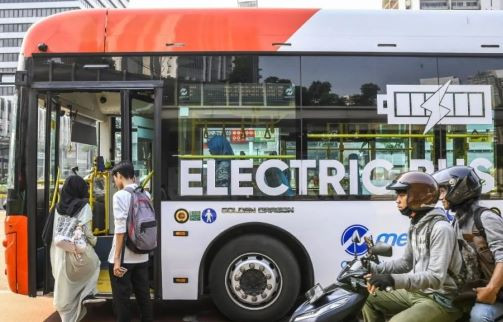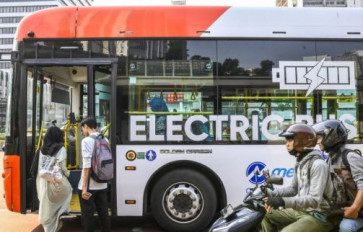Popular Reads
Top Results
Can't find what you're looking for?
View all search resultsPopular Reads
Top Results
Can't find what you're looking for?
View all search resultsSingapore's EV transition could spark Indonesia’s green evolution
Singapore’s early and consistent development of EV infrastructure offers a potential model for Indonesia, especially in urban areas where reducing reliance on fossil fuels is critical.
Change text size
Gift Premium Articles
to Anyone
I
ndonesia, like many nations, is grappling with growing environmental challenges, particularly in urban areas where transportation significantly contributes to carbon emissions.
While Indonesia may have transportation plans that address these issues, looking to other models for inspiration can enhance its approach, Singapore’s Land Transport Master Plan 2040 can serve as a source of inspiration, if not a potential guide.
Singapore’s success in transitioning to electric vehicles (EVs) and improving urban mobility provides valuable insights that could help Indonesia refine its own transportation policies. Though Indonesia's scale and context are unique, the strategic lessons from Singapore offer practical pathways toward building a sustainable and modern transportation system.
Both Indonesia and Singapore face the urgent need to tackle urban congestion and carbon emissions, though they approach these challenges from different perspectives. Singapore, with its smaller land mass and high population density, contends with specific infrastructure limitations and an aging population.
To address these issues, Singapore’s Land Transport Master Plan 2040 emphasizes transport electrification and the development of “20-minute towns and a 45-minute city”, ensuring residents can travel efficiently within their neighborhoods and city centers.
This plan not only seeks to improve mobility but also aims to reduce carbon emissions significantly, as transportation accounts for 15 percent of Singapore’s total emissions.
In contrast, Indonesia’s ambitious Golden Indonesia 2045 vision seeks to position the country as the 4th largest economy in the world while achieving net-zero greenhouse gas (GHG) emissions by 2045. However, Indonesia faces more complex challenges due to its larger size, greater population and heavy reliance on fossil fuels, particularly coal, which still constitutes a significant portion of its energy consumption.



















